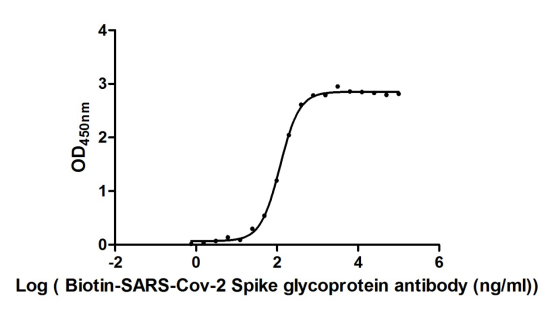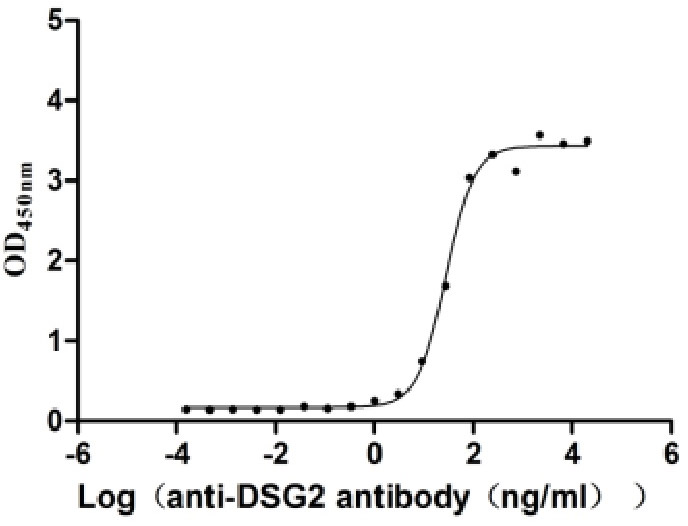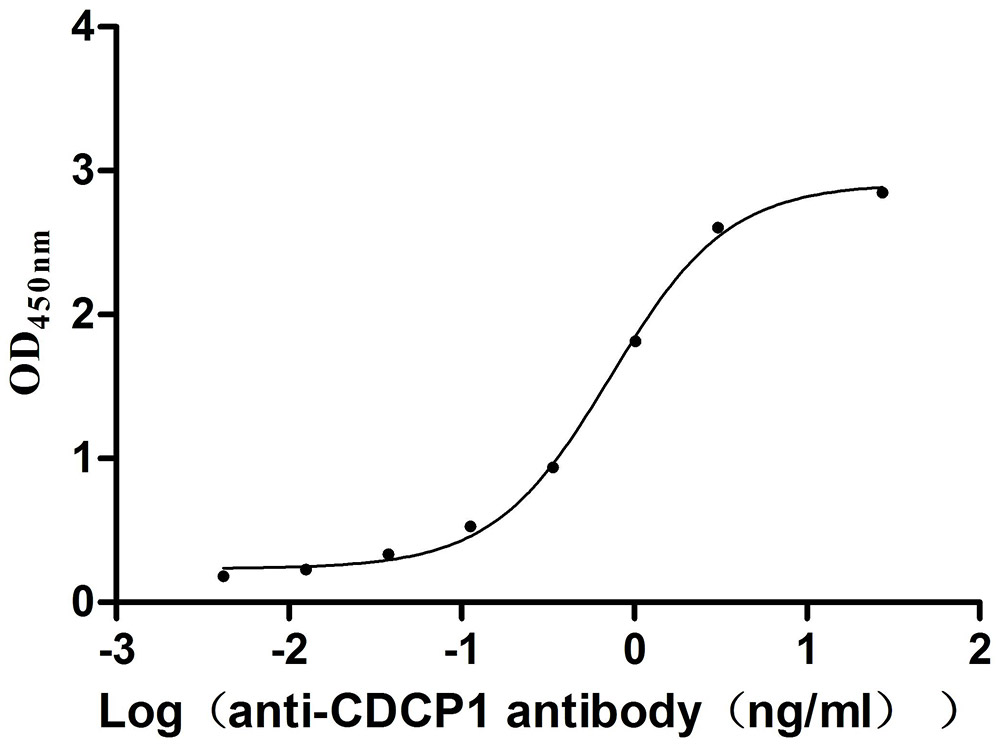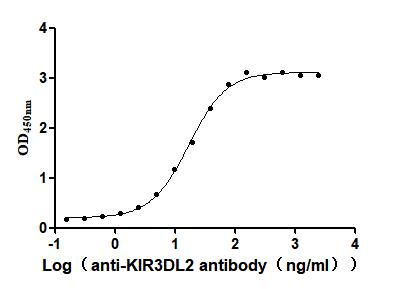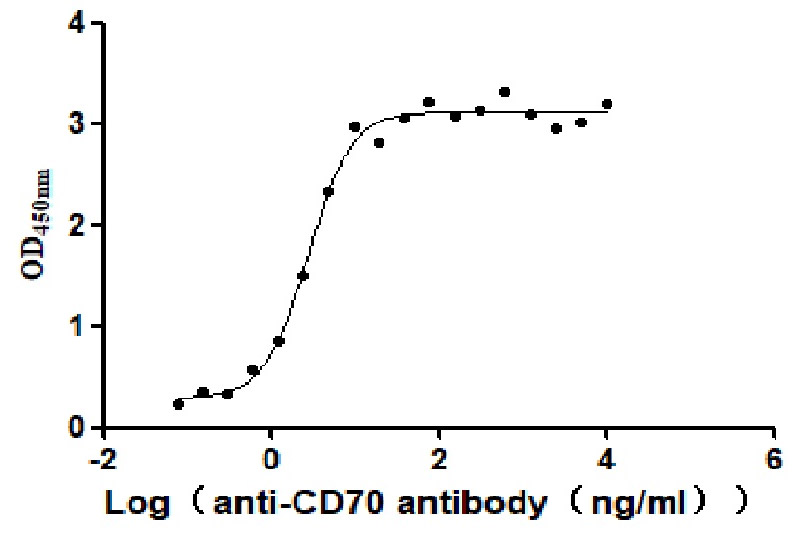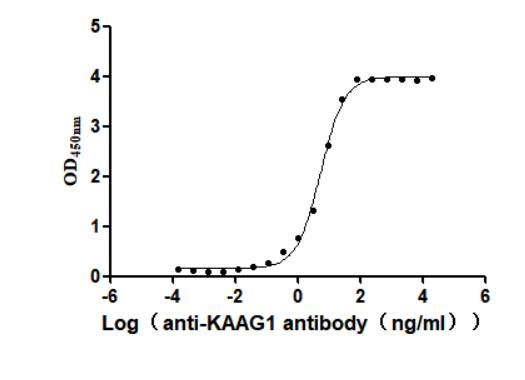Recombinant Human Receptor-type tyrosine-protein phosphatase T (PTPRT), partial
-
中文名称:人PTPRT重组蛋白
-
货号:CSB-YP019065HU
-
规格:
-
来源:Yeast
-
其他:
-
中文名称:人PTPRT重组蛋白
-
货号:CSB-EP019065HU
-
规格:
-
来源:E.coli
-
其他:
-
中文名称:人PTPRT重组蛋白
-
货号:CSB-EP019065HU-B
-
规格:
-
来源:E.coli
-
共轭:Avi-tag Biotinylated
E. coli biotin ligase (BirA) is highly specific in covalently attaching biotin to the 15 amino acid AviTag peptide. This recombinant protein was biotinylated in vivo by AviTag-BirA technology, which method is BriA catalyzes amide linkage between the biotin and the specific lysine of the AviTag.
-
其他:
产品详情
-
纯度:>85% (SDS-PAGE)
-
基因名:PTPRT
-
Uniprot No.:
-
别名:Protein tyrosine phosphatase receptor type T; PTPRT; PTPRT_HUMAN; R PTP T; R-PTP-T; Receptor protein tyrosine phosphatase; Receptor-type tyrosine-protein phosphatase rho; Receptor-type tyrosine-protein phosphatase T; RPTP-rho; RPTPmam4; RPTPrho
-
种属:Homo sapiens (Human)
-
蛋白长度:Partial
-
蛋白标签:Tag type will be determined during the manufacturing process.
The tag type will be determined during production process. If you have specified tag type, please tell us and we will develop the specified tag preferentially. -
产品提供形式:Lyophilized powder
Note: We will preferentially ship the format that we have in stock, however, if you have any special requirement for the format, please remark your requirement when placing the order, we will prepare according to your demand. -
复溶:We recommend that this vial be briefly centrifuged prior to opening to bring the contents to the bottom. Please reconstitute protein in deionized sterile water to a concentration of 0.1-1.0 mg/mL.We recommend to add 5-50% of glycerol (final concentration) and aliquot for long-term storage at -20℃/-80℃. Our default final concentration of glycerol is 50%. Customers could use it as reference.
-
储存条件:Store at -20°C/-80°C upon receipt, aliquoting is necessary for mutiple use. Avoid repeated freeze-thaw cycles.
-
保质期:The shelf life is related to many factors, storage state, buffer ingredients, storage temperature and the stability of the protein itself.
Generally, the shelf life of liquid form is 6 months at -20°C/-80°C. The shelf life of lyophilized form is 12 months at -20°C/-80°C. -
货期:Delivery time may differ from different purchasing way or location, please kindly consult your local distributors for specific delivery time.Note: All of our proteins are default shipped with normal blue ice packs, if you request to ship with dry ice, please communicate with us in advance and extra fees will be charged.
-
注意事项:Repeated freezing and thawing is not recommended. Store working aliquots at 4°C for up to one week.
-
Datasheet :Please contact us to get it.
相关产品
靶点详情
-
功能:May be involved in both signal transduction and cellular adhesion in the CNS.
-
基因功能参考文献:
- The single cell genotyping not only confirmed the co-occurrence of the PTPRT, CAND1 and DOCK6 mutations in the same AML clone but also revealed a clonal hierarchy, as the PTPRT mutation was likely acquired after the CAND1 and DOCK6 mutations. PMID: 27244256
- PTPRT promoter methylation is significantly associated with sensitivity to STAT3 inhibition in HNSCC cells, suggesting that PTPRT promoter methylation may serve as a predictive biomarker for responsiveness to STAT3 inhibitors in clinical development PMID: 25982282
- Data reported evidence that rs2866943 polymorphism in PTPRT 3'-UTR was involved in the occurrence of esophageal squamous cell carcinoma by acting as a protective factor while rs6029959 acts as a risk factor. PMID: 25967969
- Data show that hepatitis B virus X protein mutant HBxDelta127 enhances proliferation of hepatoma cells through up-regulating miR-215 targeting protein tyrosine phosphatase, receptor type T (PTPRT). PMID: 24434140
- tumor-specific mutational events in the PTPRT gene can serve as direct drivers for tumor growth by inducing hyperactivation of STAT3, a potent oncogenic transcription factor and PTPRT substrate PMID: 24395800
- The catalytic domain point mutants show a decreased thermal and thermodynamic stability and decreased activation energy relative to phosphatase activity, when compared to wild- type PMID: 22389709
- [review] High-throughput mutational analysis identifies loss-of-function mutations in six PTPs in human colon cancers, providing critical cancer genetics evidence that PTPs can act as tumour suppressor genes. PMID: 21517784
- Data show that paxillin is a direct substrate of PTPRT and that PTPRT specifically regulates paxillin phosphorylation at tyrosine residue 88(Y88). PMID: 20133777
- alterations of the PTPRT-mediated signaling pathway by PTPRT phosphatase domain mutation may not play a critical role in the development of common human cancers PMID: 17223850
- STAT3 is a substrate of receptor protein tyrosine phosphatase T PMID: 17360477
- brain-specific PTPRT regulates synapse formation through interaction with cell adhesion molecules, and this function and the phosphatase activity are attenuated through tyrosine phosphorylation by the synaptic tyrosine kinase Fyn. PMID: 19816407
显示更多
收起更多
-
亚细胞定位:Membrane; Single-pass type I membrane protein.
-
蛋白家族:Protein-tyrosine phosphatase family, Receptor class 2B subfamily
-
组织特异性:Expressed in colon, lung, heart and testis, as well as in fetal and adult brain. Not detected in muscle and peripheral blood leukocytes.
-
数据库链接:
HGNC: 9682
OMIM: 608712
KEGG: hsa:11122
STRING: 9606.ENSP00000362283
UniGene: Hs.526879
Most popular with customers
-
Recombinant Severe acute respiratory syndrome coronavirus 2 Spike glycoprotein (S), partial (Active)
Express system: Mammalian cell
Species: Severe acute respiratory syndrome coronavirus 2 (2019-nCoV) (SARS-CoV-2)
-
Recombinant Human Desmoglein-2 (DSG2), partial (Active)
Express system: Mammalian cell
Species: Homo sapiens (Human)
-
Recombinant Mouse CUB domain-containing protein 1 (Cdcp1), partial (Active)
Express system: Mammalian cell
Species: Mus musculus (Mouse)
-
Recombinant Human Interleukin-2 (IL2) (Active)
Express system: Mammalian cell
Species: Homo sapiens (Human)
-
Recombinant Human Killer cell immunoglobulin-like receptor 3DL2 (KIR3DL2), partial (Active)
Express system: Mammalian cell
Species: Homo sapiens (Human)
-
Recombinant Human CD70 antigen (CD70), partial (Active)
Express system: Mammalian cell
Species: Homo sapiens (Human)
-
Recombinant Macaca fascicularis Transmembrane 4 L6 family member 1 (TM4SF1)-VLPs (Active)
Express system: Mammalian cell
Species: Macaca fascicularis (Crab-eating macaque) (Cynomolgus monkey)
-
Recombinant Human Kidney-associated antigen 1(KAAG1) (Active)
Express system: Baculovirus
Species: Homo sapiens (Human)


